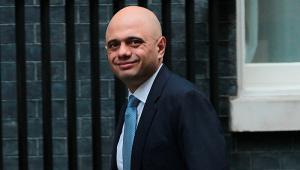Adult social care sector is in a “precarious state because of long-term underfunding” and needs a long-term funding plan, a Public Accounts Committee report has urged.
“With local authorities squeezed there is no realistic prospect of progress” on health and care integration, the report said.
The Department of Health and Social Care should provide a costed 10-year plan for social care to run alongside that for the NHS.
Prime minister Theresa May announced in June the NHS would be handed £20bn a year extra by 2023-24.
The health service is due to produce a plan of how this extra money will be spend over a 10 year period next month.
Local authorities had reduced real-terms spending on adult social care by 5.3% between 2010-11 and 2016-17, the PAC noted.
“There is widespread consensus that integration and joint working is the right way forward for the health and social care system,” it said, especially with financial pressures on services and an ageing population.
But there was “a range of longstanding legal, structural and cultural barriers hindering the pace and scale at which can happen”, the report suggested.
The government’s social care green paper, due out in this autumn, should address “fragmented funding and separate means testing affecting people who receive adult social care”, the PAC said.
There are five separate funding streams and four sets of means-testing arrangements, according to NHS England.
Local areas were finding it “unnecessarily difficult” to pool funds and work together because of the current legislative framework, causing additional cost and wasted resources, the PAC said.
PAC chair Meg Hillier called for the government to step up efforts to break down barriers to integration across the country.”
“The time for warm words and wishful thinking is over,” she said. “If the government is serious about delivering the benefits of integrated health and social care, it must act to make it happen.”
Today’s report also said the Ministry of Housing, Communities and Local Government is not doing enough to tackle the “problematic” disparity between pay and career structure of people in the NHS compared with those working in social care.
Ian Hudspeth, chair of the Local Government Association’s community wellbeing board, said: “It’s important that integration is not seen as an end in itself but as a means to achieving better services and health and wellbeing outcomes, which is why local leadership, across local government and the NHS, is crucial to making sure that health and social care work most effectively for the communities they serve."
Glen Garrod, president of the Association of Directors of Adult Social Services, said: “We support a strong focus on a local, democratically accountable, approach – it’s important that we strengthen health and wellbeing boards to enable elected local leaders to play a vital role in shaping integrated services alongside NHS colleagues.”
A DHSC spokesperson said: “We are committed to the integration of health, social care and public services, which must work seamlessly together to deliver better quality care, including through the Better Care Fund which is helping people to live independently in their communities for longer.
“We have provided local authorities access to up to £9.6bn in dedicated social care funding over the last three years and our green paper due later in the year will set out our plans to reform the social care system to make it sustainable for the future.”
In May, the PAC found that the adult social care sector was underfunded with the care workforce suffering from low pay, low esteem and a high turnover of staff.
In October, health secretary Matt Hancock committed £240m extra funding for local authority social care teams.











